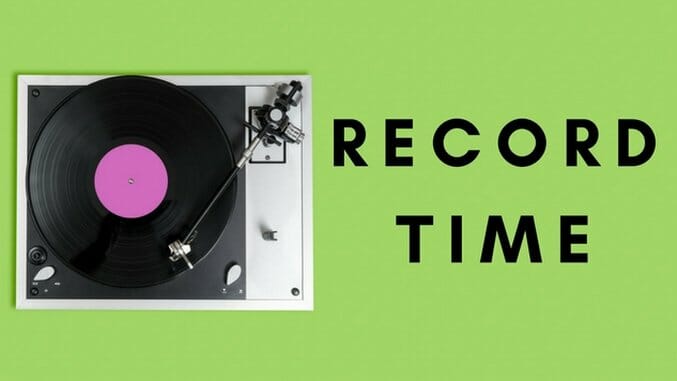
Record Time is Paste’s monthly column that takes a glimpse into the wide array of new vinyl releases that are currently flooding record stores around the world. Rather than run down every fresh bit of wax in the marketplace, we’ll home in on special editions, reissues and unusual titles that come across our desk with an interest in discussing both the music and how it is pressed and presented. This month that includes the first EP from a new dream pop duo, more reissues from Ariel Pink’s vast discography, and some rare selections from a classic Blaxploitation soundtrack.
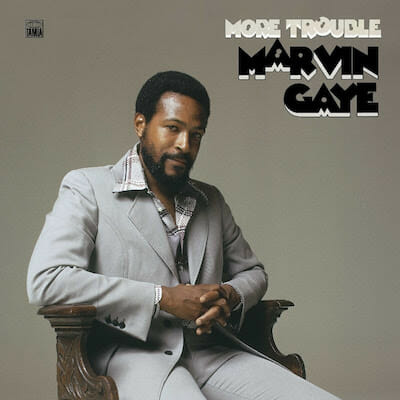
Marvin Gaye: More Trouble (Motown/UMe)
Fresh off the success of Isaac Hayes’ score for Shaft, producer Joel Freeman shot for the moon with his next project Trouble Man, calling on soul crooner Marvin Gaye to provide the background music. At the time, the singer was riding a wave of acclaim for his 1971 sociopolitical masterwork What’s Going On. Moving into the land of blaxploitation cinema seemed like a strange, lateral move. But the music he composed for the film was instead a natural progression, tapping into the smoothness of his song-based material and grooving with supple ease. Gaye also went above and beyond the call of duty, creating a full score for the film and then editing that music down for the soundtrack release. Which means there was plenty of material that sat in the vaults until 2012 when an expanded version of the soundtrack was released to celebrate its 40th anniversary. It’s from that material that this vinyl release was compiled. It’s unclear why Universal is releasing this small sampler rather than a set of the full sessions, but as a big fan of Gaye’s ‘70s work, I’ll happily take what I can get on wax. And I’ll happily shout out mastering engineer Alex Abrash for making this music sound as good as it does. These alternate takes and versions are thick with tension or snapping with trim lowrider funk (“‘T’ Plays It Cool” should be a mainstay of any self-respecting DJ’s soul/R&B set). Spoil yourself with this sweet treat, but don’t let it ruin your appetite for the full meal that is the double CD reissue that Hip-O Select released eight years back. If you can find it.
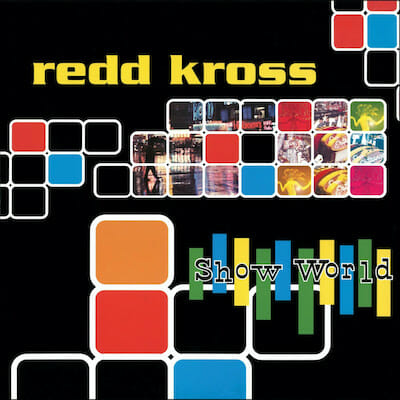
Redd Kross: Phaseshifter/Show World (Third Man/Mercury)
As the major labels swept through the underground music scene, snapping up every great and half-decent artist that the A&R wizards felt could score them a secret success or a bit of hipster cred, dozens of bands were finally given the budgets to make the records of their dreams. That’s how L.A. band Redd Kross were able to make three LPs for Mercury Records on which they crystallized their various influences into a hot, molten core. And for their trouble, they were completely ignored by the world at large, even in spite of landing some choice support slots on tours with Stone Temple Pilots and Spin Doctors. With a new lineup of the band making the rounds and making some fantastic new material, revisiting this underappreciated era of Redd Kross’ history. The first step was last year’s reissue of the group’s major label debut Third Eye and now the circle is complete with Third Man’s new pressings of 1993’s Phaseshifter and 1996’s Show World. Each one is better than the last. Steve and Jeff McDonald, the brothers who have led this group since its early punk incarnation, honed their songwriting vision on Phaseshifter. Should-have-been hits “Visionary” and “Lady in the Front Row” are lean glam/power pop anthems with the help of producer John Agnello and the sharp guitar work of the late Eddie Kurdziel felt full and muscular. By the time of Show World, produced by the band and Chris Shaw, every bit of fat and gristle was beaten out of material like “Vanity Mirror” and “One Chord Progression.” It’s lean, powerful and a hell of a lot of fun to listen to. It’s a shame that Kurdziel passed away and Show World’s anemic sales spelled the end of Redd Kross’ creative momentum. But it sure is a blast to listen to these albums again and fantasize about what might have been.
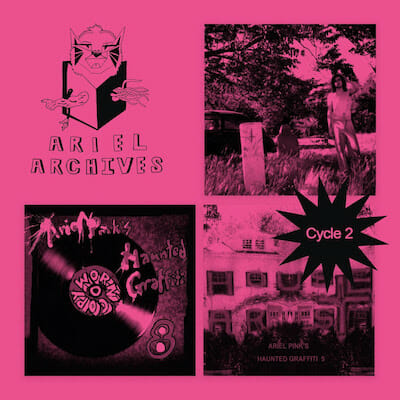
Ariel Pink: The Doldrums/House Arrest/Worn Copy (Mexican Summer)
Ariel Pink, the L.A. artist known initially for his lo-fi pop aesthetic and hyper-prolific output, must be amused to see how many times his rough sketch tunes have been reissued over the years. Recorded using wonky equipment and burned to CD-Rs, his work through the ‘00s has been re-released multiple times, including vinyl editions funded by Animal Collective and the tastemaking label Mexican Summer. The latest releases as part of an ongoing Ariel Archives campaign brings back three albums that are fan-favorites: The Doldrums, self-released in 2000; House Arrest, a set originally included as part of a 2002 double CD and Worn Copy, released by Pink in 2003. Listening to them in order is like getting closer and closer to the source of a really great AM radio broadcast. The playfulness and melodicism buried beneath tape hiss and rough edits on Doldrums starts to clear up on House Arrest even as the fuzzy bass and cloudy production keeps things mildly obscured. By the time you hit Worn Copy, Pink’s work was as clear as it was going to get for the time, even as the tunes seemed to be coming from a tape playing on a dying boombox. As with last year’s first run of archival releases, Pink and his cohort Paul D. Millar and mastering engineer Dave Cooley do impressive work making these tunes feel comfortable on vinyl by applying proper stereo separation and giving them the luxury of splaying out on double LPs. That does mean regular trips to the turntable to flip the LPs, but that having those moments to break out of the spell this brown acid psychedelia casts on the listener will likely be good for your continued mental health.
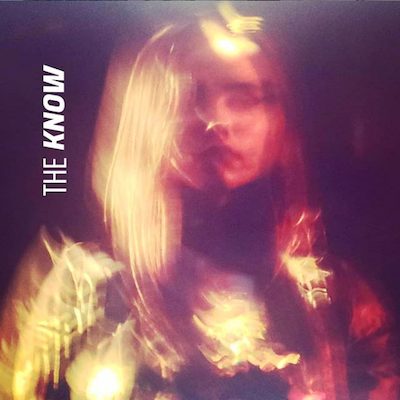
The Know: wearetheknow (self-released)
As much as dream pop gets associated with neon-lit nights in smoky bars, to these ears, it sounds best on a bright sunny day, adding a languid, honey-dipped feeling to the humid air and blinding colors. That’s why I’m going to spend my summer spinning this new EP by the L.A.-based duo The Know. The husband-and-wife team has a fine pedigree, with guitarist Daniel Knowles logging time in the group Amusement Parks on Fire and doing live sound for likeminded artists like Cigarettes After Sex and Sharon Van Etten. Knowles provides all the instrumental backing for these five songs: swarms of buzzing guitars, plainspoken drum machine rhythms, layer upon layer of reverb. Swaying through it all is Jennifer Farmer, a vocalist with the hypnotized, sensuous timbre that would make David Lynch apoplectic with joy. While this has a gleam that belies its creation in the couple’s home studio, I would love to hear what The Know could do with a proper recording budget, blowing these taut, minimalist tunes into something brasher and more lurid. While I await that blessed day, I’ll be dropping the needle on this clear yellow vinyl release with regularity.
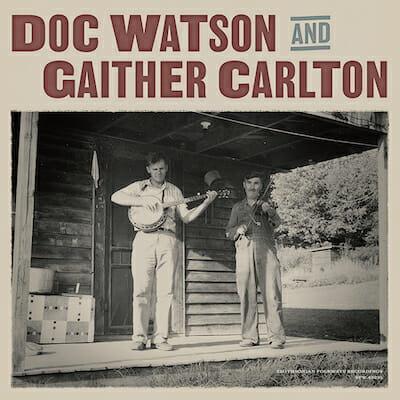
Doc Watson and Gaither Carlton: Doc Watson and Gaither Carlton (Smithsonian Folkways)
Like many folk music fans in the early ‘60s, Peter Siegel was an amateur archivist, carrying his Tandberg 3B tape recorder to gigs so as to capture their performances for posterity and to learn the songs that made up their setlists. So it was that he recorded some New York City performances by guitarist Doc Watson and fiddler Gaither Cartlon (who happened to be Doc’s father-in-law. With the help of Smithsonian Folkways, Siegel has compiled the best performances from two 1962 gigs—at the coffee house Blind Lemon and for NYU’s Friends of Old Time Music—and cleaned them up for this release. It’s a marvelous document, showcasing the deep musical connection that the two men shared and their clear love for songs that were, in some cases, four decades’ old by the time they played them for the rapturous audiences in the Big Apple. And through Siegel’s smart microphone placement, we get every last pluck and squeak of their instruments and can clearly hear how the songs groaned to life as they settled into a comfortable, well worn groove. My favorite element of this is hearing the voice of the late Watson—strong and rich when singing; spry and warm when urging Carlton on or quietly addressing the crowd. The new vinyl release comes, as all good Smithsonian LPs do, with copious program notes, including the history of each song and rough sketch biographies of Carlton and Watson.